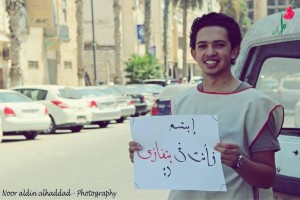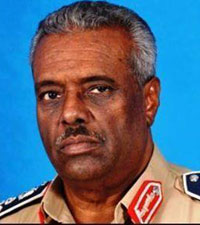By Libya Herald staff.

Tripoli, 14 December 2014:
As organisations and activists around the world marked International Human Rights Day, the Libyan group Lawyers for . . .[restrict]Justice in Libya (LFJL) highlighted many of the human rights violations that have taken place this year.
Human rights abuses have been on the rise in 2014, especially since armed clashes broke out in May.
Benghazi, where the clashes began, and other areas such as Tripoli and the Jebel Nafusa, have seen indiscriminate shelling in heavily populated residential areas, leading to civilian casualties and destruction of private property.
Even hospitals have not escaped damage. Some targetting of hospitals, LFJL claimed, was intentional. Furthermore, expatriate medical staff, who comprised 80% of all medical professionals, have fled the country and stored medical supplies storage have been destroyed. As a result, a medical crisis has developed with poorly-staffed and under-supplied clinics and hospitals.
LFJL also condemned the increase in abductions and assassinations in 2014, specifically mentioning the spate of September assassinations in Benghazi. Many attacks targeted civil rights activists. Most notable among the victims have been Tawfik Ben Saud, Sami Al-Kawafi and Salwa Bugaighis. These internationally-condemned murders caused many activists either to flee the country or to fall silent.
The LFJL said that torture has been on the rise in 2014, with “53% of those arrested, detained or imprisoned in Libya reported being subjected to torture or violence”. It added that the Libyan judicial system had “no effective mechanism for victims to seek reparations”.
Since the conflict began in Ma , said the LFJL, at least 400,000 Libyans have been driven from their homes within Libya. Non-Libyan migrant workers, refugees and asylum seekers are particularly vulnerable inside Libya and around 150,000 have fled to neighbouring countries. The Tawerghans are particularly at risk, said the LFJL, since 35,000 of them, already living in displacement camps, have been forced to move again.
LFJL called on the Libyan government to take legal action and bring about a return of the rule of law. They insisted that victims have the opportunity to seek legal redress.
The Libyan government, said LFJL, must act. “The state’s ongoing tolerance of such grave acts may constitute a crime against humanity for which Libya may be internationally responsible,” it said.
They also urged an immediate end to impunity, saying that “the culture of impunity is a key cause of the current instability.”
While LFJL praised the attempts to bring different parties together for dialogue and a possible negotiated settlement, they insisted that any settlement must include accountability for human rights violations that have taken place.
[/restrict]







